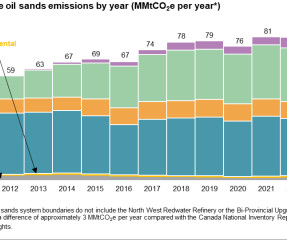S&P Global: absolute GHGs from Canadian oil sands did not increase in 2022 even as production grew
Green Car Congress
AUGUST 10, 2023
Absolute greenhouse gas emissions from Canadian oil sands production were flat in 2022 even as total production grew, according to an initial analysis by S&P Global Commodity Insights. The Canadian oil sands have demonstrated a consistent trend of reductions in GHG intensity for the past decade.





















Let's personalize your content